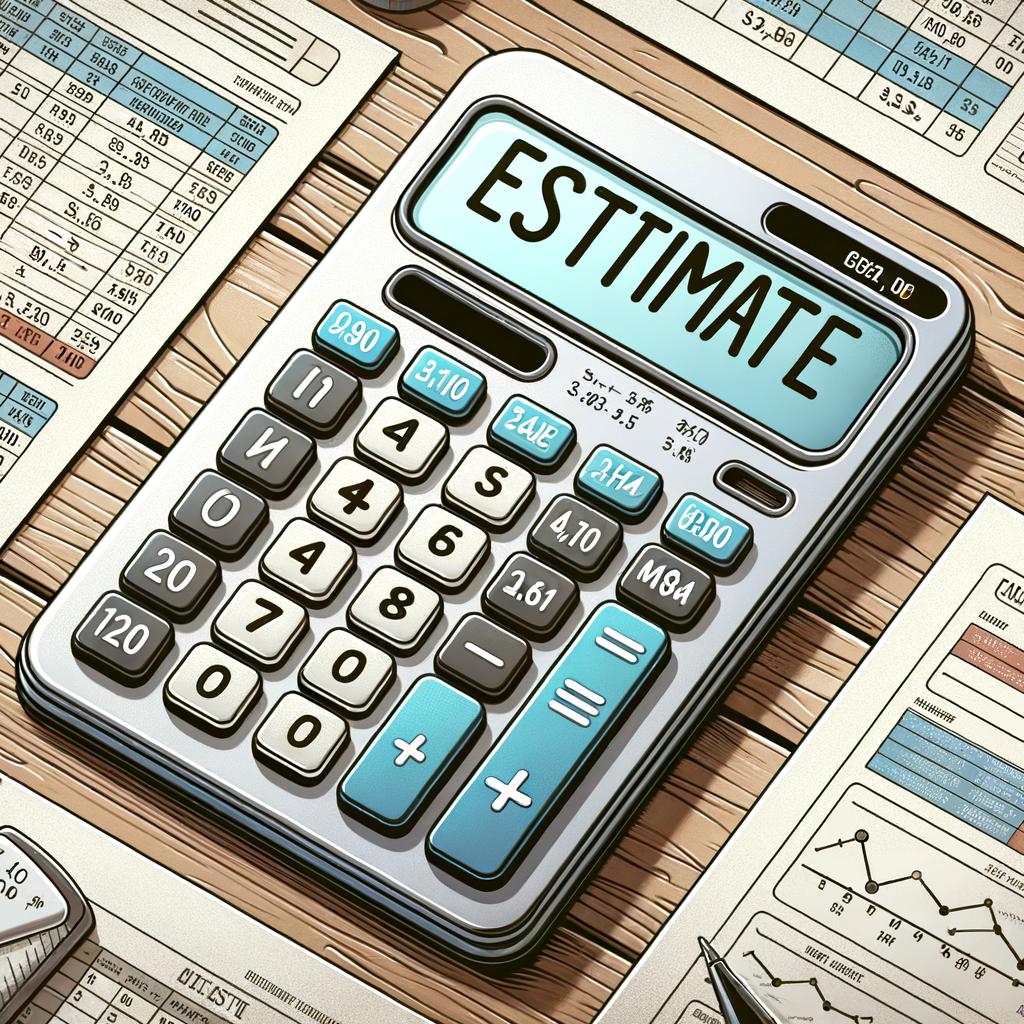As the dawn breaks over the financial landscape of 2023, a notable figure casts a shadow for students and graduates alike—HECS indexation is poised to climb to 4.7 per cent. While these numbers might seem as enigmatic as the inner workings of an ancient clock, their impacts on your financial gears are incredibly real and immediate. Are you tethered to a Higher Education Loan Program (HELP) debt? Then it’s likely you’ll feel the tightening of this fiscal spring. Wondering how this uptick could translate into dollars and sense for you? Fear not, because tucked within this article lies our savvy calculator, ready to distill abstract percentages into concrete figures. Let’s explore what this increase means for your wallet and how you can navigate the future cleverly informed.
Table of Contents
- Understanding HECS Indexation and Its Impact on Your Debt
- Explore the Effect of a 4.7% Indexation Increase on Your HECS Loan
- Use Our Calculator to Estimate Your Additional Payments
- Strategies to Manage Higher HECS Payments in Your Financial Plan
- In Summary

Understanding HECS Indexation and Its Impact on Your Debt
When you signed up for your degree, understanding the financial implications of your Higher Education Contribution Scheme (HECS) debt likely wasn’t your first priority. However, as you near graduation or if you are currently managing repayments, it’s crucial to grasp how indexation affects the total amount you owe.
HECS indexation is not to be confused with interest. Instead, the scheme adjusts your outstanding HECS debt according to changes in the cost of living, measured by the Consumer Price Index (CPI). This adjustment ensures that the value of the money owed keeps pace with inflation.
Announced recently, the indexation rate for this year is set at 4.7%. What does this mean for your debt? Simply put, if your HECS debt stood at $20,000 last year, it will increase by an additional $940 this year due to indexation.
Whether you’re a fresh graduate or several years past your convocation, here’s how the recent jump in indexation rate from previous years impacts your repayment timetable:
- If you earn above the compulsory repayment threshold, which is currently set at $47,014, you’ll be required to make repayments through your tax.
- The more you earn, the higher percentage of your income will go towards repaying your HECS debt.
But how quickly does this affect the total amount you pay? To illustrate, consider the following scenario:
| Initial Debt | Year | Debt Post-Indexation | Annual Repayment | Remaining Debt |
|---|---|---|---|---|
| $20,000 | Year 0 | $20,000 | $0 | $20,000 |
| $20,000 | Year 1 | $20,940 | $1,000 | $19,940 |
| $20,940 | Year 2 | $21,955.18 | $1,500 | $20,455.18 |
Note that the longer your debt remains unpaid, the more significant the cumulative impact of indexation becomes, creating a potential snowball effect. This means that-making higher repayments early, if possible, could significantly reduce the total amount you pay over time.
Curious about how different salary levels impact the speed of your HECS debt repayment, especially with the new indexation rate? Our handy online calculator can help. By entering your current HECS balance and your annual income, you can see a detailed projection of how much and how long you will need to pay off your debt.
The HECS system offers unique benefits, such as no real interest charged on your loan, and repayments adjusted to your income, thus providing financial flexibility. Yet, the importance of being proactive with repayments cannot be overstated, especially with indexation potentially increasing the amount you owe each year.
Understanding these dynamics can help you manage your finances better and avoid surprises in your educational investment. Keep an eye on annual announcements regarding indexation rates and consider these in your financial planning to efficiently manage your HECS debt.

Explore the Effect of a 4.7% Indexation Increase on Your HECS Loan
As part of the annual adjustments that occur to the Higher Education Loan Program (HELP) debts, this year witnesses a substantial rise with an indexation rate set at 4.7%. If you’re currently carrying a HECS debt, this increment will directly influence the balance you owe. Understanding these changes is crucial, especially for budgeting and planning your financial year.
First, let’s break down how indexation works. Indexation is applied to maintain the real value of the debt in line with changes in the cost of living, measured by the Consumer Price Index (CPI). Essentially, as the general cost of living increases, so does your loan balance. This prevents the value of the money you owe from diminishing over time due to inflation.
For those with a HECS debt, this year’s 4.7% hike means that each $1,000 of your outstanding balance will accrue an additional $47. To simplify, here’s what it looks like:
| Original Debt | Added Indexation | New Total Debt |
| $10,000 | $470 | $10,470 |
| $20,000 | $940 | $20,940 |
| $30,000 | $1410 | $31,410 |
In light of this increase, you might want to consider how it affects your repayment trajectory. For example, in scenarios where your annual income reaches the repayment threshold sooner due to a pay rise or a change in employment, your HECS repayments will begin at a slightly adjusted bracket.
Here’s what you can do to mitigate the impact of this indexation:
- Extra Repayments: If possible, making voluntary repayments can help reduce the principal amount and, consequently, the compounded indexation in subsequent years.
- Budget Review: Consider revising your monthly budget to accommodate the slight increase in compulsory repayment once your salary exceeds the threshold.
- Financial Planning: Consult with a financial advisor to better align your financial strategy with these new changes, ensuring that you can manage repayments effectively without overstressing your finances.
While the thought of your loan balance increasing might seem daunting, remember that HECS is still one of the more flexible loans. There are no interest charges per se — just the annual indexation to preserve its value. This design is inherently beneficial as it lacks the rapid compounding effect seen in typical consumer debt interest rates.
Nonetheless, staying informed and proactive about your HECS loan status remains key. Utilize our dedicated calculator available on this site to see precisely how the new indexation rate affects your total debt and plan accordingly. By entering simple details like your current loan amount and estimated annual income, you’ll gain a clearer perspective on future repayments and overall debt management.
Monitoring these changes and understanding their implications will ensure that you stay ahead in managing your student debt efficiently. By making informed decisions and planning wisely, you can navigate through these yearly adjustments with greater ease and confidence.

Use Our Calculator to Estimate Your Additional Payments
Understanding how the upcoming HECS indexation rate of 4.7% affects your repayment amounts is crucial for effective financial planning. With expenses and financial commitments always on the rise, it’s easy to overlook how these increments in indexation can impact your budget. That’s why we’ve developed an intuitive calculator tool to help you visualize the exact impact on your repayments.
Our tool simplifies the calculation process. You just need to input your current HECS debt balance and your estimated annual income—our calculator will do the rest. It projects the increase in your repayments so you can plan your finances with precision.
How to Use the Calculator:
- Enter your outstanding HECS debt amount.
- Type in your forecasted income for the next financial year.
- Hit ‘Calculate’ to see your adjusted monthly and yearly repayment amounts.
For instance, if you currently owe $25,000 in HECS debt, with an anticipated annual income of $75,000, the tool will illustrate how the new indexation rate will alter your payment over time. Knowing these figures can significantly influence your personal budgeting and long-term financial strategy.
| Debt Amount | Income | Current Monthly Repayment | Monthly Repayment with 4.7% Indexation |
|---|---|---|---|
| $25,000 | $75,000 | $188 | $197 |
| $30,000 | $85,000 | $255 | $267 |
| $40,000 | $95,000 | $340 | $356 |
This table showcases a basic overview assuming salary brackets and corresponding repayment increases. As you can see, even small increments through indexation can affect the total repayment amount, thus impacting your budget over the fiscal year.
Our calculator provides more than just numbers—it offers a perspective on how HECS indexation can stretch your financial commitments, allowing you to make more informed decisions about spending, saving, or investing. Understanding these dynamics is essential, especially for recent graduates or those nearing the end of their repayment period.
Why wait? Scroll up now and try out the calculator. A few seconds of your time could save you much more as you gain a clearer picture of your financial future and plan accordingly. Keep in face, the better you understand your finances, the better prepared you are to manage them effectively!

Strategies to Manage Higher HECS Payments in Your Financial Plan
With the recently announced HECS indexation rate of 4.7%, many students and graduates might be reassessing their financial plans. Managing your HECS payments effectively can make a significant difference in your personal finance over time. Here are some of the strategies you can implement to better manage higher HECS payments:
1. Early Repayment Benefits
Consider making voluntary HECS repayments if you can afford it. Even small additional payments can reduce the principal faster and decrease the total interest accrued. Early repayments not only fast-track your loan clearance but may also improve your credit rating and borrowing capacity for future loans.
2. Budget Adjustments
Revisit your monthly budget to accommodate the slight increase in compulsory repayments due to the higher indexation rate. You might find opportunities to cut unnecessary expenses or redirect some funds from non-essential to essential budget categories.
3. Tax Planning
- Claim any work-related expenses to reduce your taxable income, which in turn could reduce your compulsory repayment amount.
- Keep track of receipts and consider consulting with a tax professional to understand all possible deductions.
4. Side Income Opportunities
Explore avenues to earn additional income which can be dedicated solely to HECS payments. This can include freelance gigs, weekend part-time jobs, or turning a hobby into a source of income.
5. Use Windfalls Wisely
If you receive any unexpected windfalls such as bonuses, tax returns, or gifts, consider using part or all of this towards your HECS debt. Windfalls can make a substantial dent in your HECS debt without impacting your regular financial commitments.
6. Loan Interest Comparison
If you have multiple loans, compare the interest rates. It might be more beneficial in the long term to focus on paying down higher interest loans first before making extra payments on your HECS debt.
| Strategy | Benefits |
|---|---|
| Early Repayment | Reduces total interest, improves credit score |
| Budget Adjustments | Ensures funds are optimally allocated |
| Tax Planning | Lowers taxable income, potentially reducing HECS repayment |
| Side Income | Boosts repayment capability without affecting regular budget |
Integrating these strategies into your financial planning will help manage the effects of the increased HECS indexation rate effectively. While these approaches require some discipline and upfront effort, they can significantly ease the long-term financial burden of higher education costs. Wise financial decisions today will pave the way for a more secure financial future.
In Summary
As we close the chapter on our exploration of the upcoming HECS indexation adjustment to 4.7 percent, remember that these figures aren’t just numbers on a page — they directly impact your financial future. Curiosity about how this might alter your payments is only natural, and staying informed is key. We invite you to use our interactive calculator as a guide through this labyrinth of digits; it’s designed to provide you with a clearer glimpse of what lies ahead. With a few clicks, discover precisely how much extra you may need to budget for. Navigate these changes smartly, and keep optimizing your repayment strategy. After all, foresight today can lead to financial freedom tomorrow.
